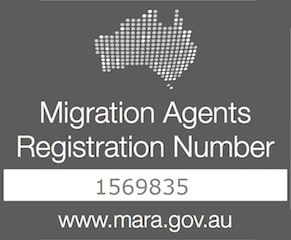To satisfy the relationship requirement for an Australian Partner visa, the applicant must provide evidence that they are in a genuine and ongoing relationship with their Australian citizen, permanent resident or eligible New Zealand citizen partner. The evidence should demonstrate that the couple has a shared life together, and that their relationship is more than just a temporary arrangement.
This article pertains to several categories of Partner visas, which include the following subclasses: 820/801, 309/100, and 300.
Evidence that can be used to demonstrate a genuine and ongoing relationship
Some of the types of evidence that may be used to demonstrate a genuine and ongoing relationship include:
- Proof of shared finances, such as joint bank accounts or joint ownership of property.
- Evidence of joint household, such as joint tenancy agreements or shared bills.
- Proof of social and recreational activities, such as photographs of the couple together, travel itineraries or tickets, or invitations from friends and family.
- Evidence of shared commitment, such as joint legal responsibilities or declarations of the relationship with government agencies.
- Evidence of communication, such as phone records, emails or text messages.
- Statutory declarations from friends and family members, attesting to the nature and length of the relationship.
It’s important to note that the evidence provided should be specific to the couple and their relationship, and should cover the entire period of the relationship. The evidence should also be comprehensive and should provide a clear picture of the couple’s shared life together.
When the Department assessing whether a relationship is genuine
The Australian Department of Home Affairs places a high emphasis on the genuineness of the relationship when assessing Partner visa applications. This means that the applicant must demonstrate that they have a real and continuing relationship with their Australian citizen, permanent resident or eligible New Zealand citizen partner.
When assessing whether a relationship is genuine, the Department of Home Affairs will look at a range of factors, including:
- The duration of the relationship: Generally, the longer the relationship, the stronger the evidence of genuineness.
- Living arrangements: Evidence of living together, such as joint tenancy agreements or utility bills, can be a strong indicator of a genuine relationship.
- Social and recreational activities: Evidence of shared social and recreational activities, such as photographs or travel itineraries, can demonstrate a strong bond between the couple.
- Financial arrangements: Evidence of shared finances, such as joint bank accounts or shared debts, can demonstrate a level of commitment and interdependence.
- Communication: Evidence of regular and ongoing communication, such as phone records or email exchanges, can demonstrate a strong emotional connection between the couple.
It’s important to note that the evidence provided should be specific to the couple and their relationship. It should also cover the entire period of the relationship, from the time it began up to the time of the visa application.
The Department of Home Affairs may also conduct interviews with the couple, either together or separately, to assess the genuineness of the relationship. The purpose of these interviews is to ensure that the couple has a real and continuing relationship and that the relationship is not just a sham or temporary arrangement to gain entry to Australia.




